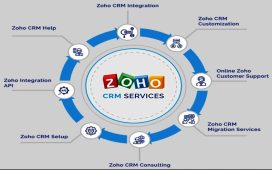Industrial maintenance is the backbone of any manufacturing or production-based industry. It ensures that equipment and machinery run smoothly, reducing the risk of costly breakdowns and unplanned downtime. Maintaining machinery is essential to achieving high operational efficiency, safety, and cost-effectiveness.
The Importance of Industrial Maintenance in Preventing Downtime
One of the most significant benefits of industrial maintenance is its ability to prevent downtime. Machinery failures, if not addressed in a timely manner, can halt production completely. This disruption not only impacts productivity but also leads to financial losses. Regular industrial maintenance helps identify potential issues before they evolve into major problems, ensuring continuous operations.
Regular Maintenance Improves Equipment Lifespan
Regular industrial maintenance extends the life of machinery and equipment. Over time, wear and tear can significantly reduce performance if proper care is not given. Industrial maintenance addresses small issues before they become significant repairs that could require costly replacements.
Cost Benefits of Investing in Industrial Maintenance
Though industrial maintenance involves some upfront costs, it ultimately saves money. Preventive maintenance is far less expensive than emergency repairs. Without regular maintenance, a minor malfunction could snowball into a significant issue, requiring expensive parts and labor.
Investing in industrial maintenance reduces the frequency of large-scale repairs, optimizes energy consumption, and improves operational efficiency. These savings are a direct result of maintaining a proactive approach to machine upkeep, ensuring companies avoid unanticipated costs.
Industrial Maintenance for Safety and Compliance
A crucial aspect of industrial maintenance is ensuring safety standards are met. Regular inspections of machinery, tools, and equipment can identify any potential hazards. By conducting routine maintenance, industries can prevent accidents that could harm employees or damage the workplace.
Additionally, many industries are required to follow strict safety regulations. Failure to comply with these rules can lead to penalties or legal issues. Proper industrial maintenance ensures that companies stay within the bounds of safety and legal guidelines, protecting both workers and the business.
The Role of Technology in Modern Industrial Maintenance
Advances in technology have significantly changed the way industrial maintenance is carried out. Today, industries utilize computerized maintenance management systems (CMMS) to track machinery performance and maintenance schedules. These tools help companies predict when a machine will require service or parts replacement, based on historical data and performance patterns.
Predictive maintenance technologies, such as sensors and IoT devices, monitor equipment in real-time. This allows businesses to receive alerts before a failure occurs, enabling them to take immediate action and prevent downtime. The integration of technology into industrial maintenance makes it more efficient and effective, contributing to long-term productivity.
Best Practices for an Effective Industrial Maintenance Plan
To reap the full benefits of industrial maintenance, businesses must have a structured and effective maintenance plan. First, companies should implement regular inspections and service schedules for all machinery. Keeping detailed records of maintenance activities helps track the condition of equipment and ensures no maintenance task is overlooked.
Training staff is another vital part of an effective maintenance plan. Employees should be knowledgeable about how to operate machinery safely and maintain it properly. Additionally, having a dedicated maintenance team or outsourcing to experts can ensure the plan is executed efficiently.
Conclusion
Industrial maintenance is crucial for ensuring long-term efficiency in any industry. By preventing downtime, extending equipment lifespan, and optimizing costs, maintenance plays a pivotal role in achieving operational success. Adopting modern technologies and following best practices in maintenance planning can significantly boost productivity while ensuring safety and compliance.













